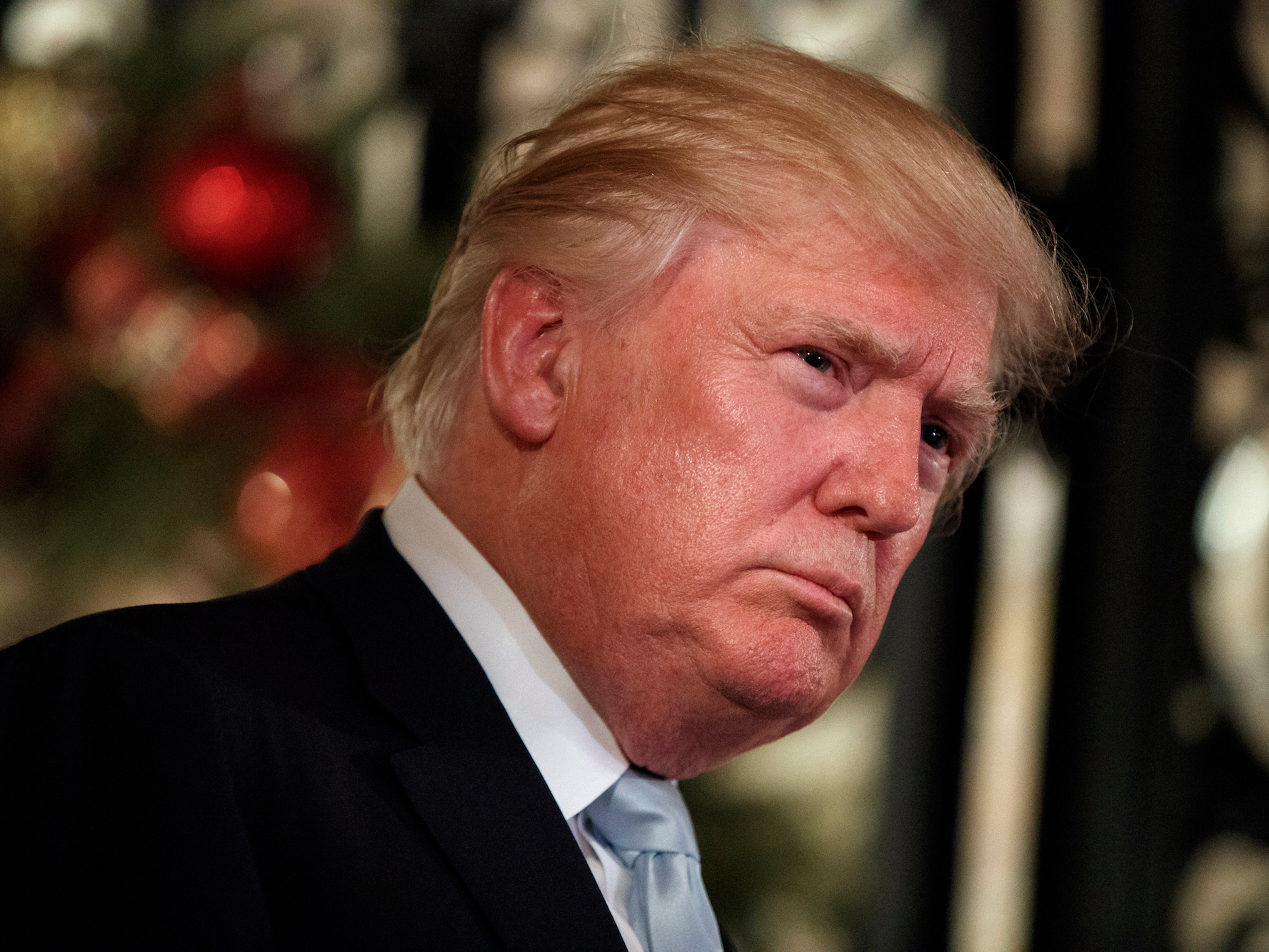President-elect Donald Trump is still against the $85 billion merger of AT&T and Time Warner because he thinks “it would consolidate too much power in the media industry,” according to Bloomberg’s Gerry Smith and Joshua Green, who cite “people close to” Trump.
“Trump told a friend in the last few weeks that he still considers the merger to be a bad deal,” Bloomberg reports. Steve Bannon, a close Trump adviser, also opposes the deal, according to the report.
Shares of Time Warner fell roughly 3% on the news, but have recovered some ground.
Trump’s negative view of the deal comes “partly from his frustration with CNN, which is owned by Time Warner, one of the people said,” according to Bloomberg.
Trump hasn’t spoken publicly about the merger in a significant way since he railed against it on the campaign trail.
"As an example of the power structure I'm fighting, AT&T is buying Time Warner and thus CNN - a deal we will not approve in my administration because it's too much concentration of power in the hands of too few," Trump said in a speech in October.
But recent reports out of the Trump transition team were more favorable to AT&T and Time Warner.
Last month, Trump's transition team assured AT&T that, contrary to Trump's campaign rhetoric, the proposed merger would be treated without prejudice, according to the Financial Times.
"After talking with the president-elect's team, AT&T executives are confident that their deal has a good chance of passing regulatory scrutiny, people informed about the conversation said," the FT report said.
The approval process
Still, even with Trump's negative stance, it's not apparent what effect he would have on the merger's approval.
In November, AT&T told Wall Street not to worry about it.
At RBC's Technology, Internet, Media and Telecommunications Conference in New York, AT&T management suggested there wouldn't be any trouble with the merger.
One big reason AT&T was optimistic at the conference was because the company believes the merger won't be under the jurisdiction of the Federal Communications Commission.
"The only scenario in which the FCC would have jurisdiction is if Time Warner transfers certain broadcast licenses to AT&T," wrote RBC analyst Jonathan Atkin, who viewed the presentation by AT&T's Chris Womack and Michael Black. "The company believes these licenses (primarily business radio licenses and licenses related to Time Warner's ownership of the WPCN superstation) can be offloaded easily, obviating the need for an FCC review."
That would mean the merger would need to clear only the Department of Justice, which AT&T is optimistic about.
"The major difference between an FCC and DOJ review is that a DOJ review provides AT&T legal recourse while the FCC, if it chooses not to support the deal candefer="defer"the issue to an administrative law judge, a process that can last upwards of three years, usually resulting in the dissolution of the deal," Atkin wrote.
AT&T said in November that it liked its odds and expects the timeline on the merger to be 12-14 months.

